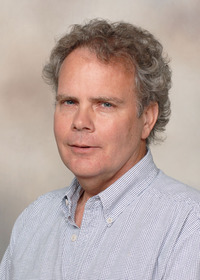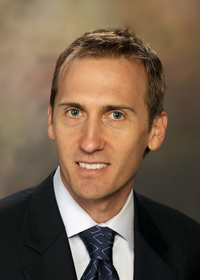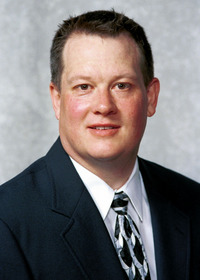Information Possibly Outdated
The information presented on this page was originally released on October 26, 2006. It may not be outdated, but please search our site for more current information. If you plan to quote or reference this information in a publication, please check with the Extension specialist or author before proceeding.
Golf software donation improves PGM program
MISSISSIPPI STATE -- A degree program that requires students to spend extensive time on the golf course got an academic boost with the recent donation of a piece of state-of-the-art equipment to evaluate golf swings.
Denver-based GolfTEC Enterprises donated a $22,000 SEVA system in September to Mississippi State University's Professional Golf Management program. GolfTEC founders Joe Assell and Mike Clinton are PGM graduates who are sharing the success of their company with their alma mater.
Steve LeMay, director of MSU's PGM program, said the SEVA system will allow students to improve their swings, which is an important part of their professional development.
“This donation gives us some technology no other program has,” LeMay said.
The body motion-sensing technology gives information on how far a golfer has turned hips and shoulders, where the hips are at ball impact and other forms of essential data when evaluating and improving a golf stance and swing. The software also lets users shadow their own swings against the swing of 150 different touring professionals.
“This equipment will help our students pass the Playing Ability Test that is one of their academic requirements,” LeMay said.
MSU's PGM program is an apprentice program that requires students to qualify for membership in the Professional Golfers Association of America, obtain a marketing degree and complete 20 months of co-op work experience.
“Our graduates move up quickly in this industry. They often become head professionals five to 10 years earlier than average,” LeMay said.
There are 18 PGM programs nationwide, and MSU has the second oldest at a Division I school or research institution. Other universities with PGM programs include Penn State, Clemson, Florida State and Nebraska. MSU's program was started in 1985 and graduates about 20 students a year.
“If you're going to argue about who's best, you have to talk about us,” LeMay said of MSU's rank in this group.
The SEVA system will help PGM students master their golf game and improve their skills as golf instructors. Time spent in co-ops gives them actual work experience and allows them to hold positions of responsibility in their field. Academics make up the final component of the program, and PGM majors study more than one discipline while earning a business degree.
Gregg Munshaw, an assistant professor in MSU's Department of Plant and Soil Sciences and a Mississippi Agricultural and Forestry Experiment Station researcher, teaches turf management to PGM majors.
“This class teaches how to grow healthy turf grasses, grass identification, disease identification and control, and cultural practices such as mowing, irrigation and fertilization,” Munshaw said. “This is a pretty hard-core science class, and they tend to do well because they understand it is going to be a tough class and something outside their comfort zone, so the PGM students tend to study more.”
Munshaw said many PGM majors become golf pros, and the information they learn in this class helps them build a relationship with the golf course superintendent. The superintendent is responsible for maintaining the greens, and the golf pro is responsible for the golfers.
“When a golfer has a complaint about the golf course, the golf pro is the first person the golfer comes in and complains to or asks about something,” Munshaw said.
Contact: Dr. Gregg Munshaw, (662) 325-8280




